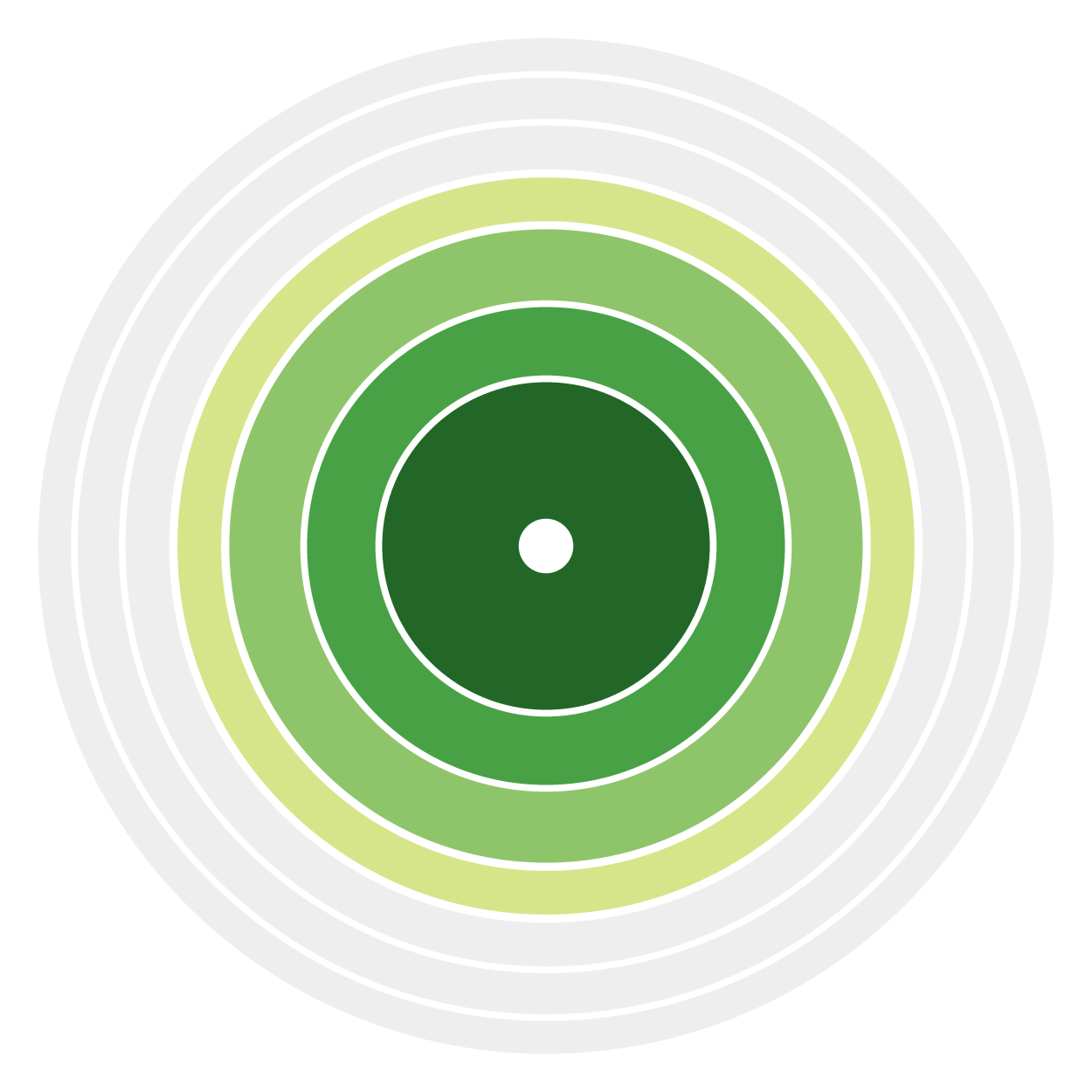Japanese vocabulary in the iKnow! Core 6000 list
iKnow! Japanese Core 6000 Vocab 701-800
QUICK STUDY
FLASHCARDS
DOWNLOAD
adverb, pronoun
1. here and there; all around; everywhere; throughout; all over (often written with kana only)2. to get things in the wrong order (back to front); to become muddled up (often written with kana only; this meaning is restricted to reading あちこち, あちらこちら, あっちこっち, アチコチ)
(click the word to view an additional 4 forms, examples and links)
Most common form: そっち
pronoun, 'no' adjective
1. that way (direction distant from the speaker, close to the listener) (see also: 何方, 此方, 彼方; often written with kana only)2. there (place distant from the speaker, close to the listener)
(click the word to view an additional 3 meanings and 2 forms, examples and links)
Most common form: あっち
pronoun, 'no' adjective
1. that way (direction distant from both speaker and listener); over there; yonder (see also: 何方, 此方, 其方; often written with kana only)2. that one (something physically distant from both speaker and listener, or something not visible but known by both speaker and listener); that
(click the word to view an additional 2 meanings and 2 forms, examples and links)
2. annoying; troublesome; tiresome; persistent; importunate (often written with kana only)
(click the word to view an additional 2 meanings and 5 forms, examples and links)
Most common form: 硬い
2. stiff; tight; wooden; unpolished (e.g. writing)
(click the word to view an additional 4 meanings and 5 forms, examples and links)
2. profound
(click the word to view an additional 4 meanings, examples and links)
1. interesting; fascinating; intriguing; enthralling
2. amusing; funny; comical
(click the word to view an additional 1 meaning, examples and links)
1. really; truly; entirely; completely; wholly; perfectly
2. indeed
(click the word to view an additional 1 meaning, examples and links)
1. general; ordinary; usual
2. normally; generally; usually
(click the word to view an additional 1 meaning, examples and links)
noun
1. culture; civilization; civilisation2. Bunka era (1804.2.11-1818.4.22)
(click the word for examples and links)
adverbial noun (fukushitekimeishi), noun (temporal) (jisoumeishi)
every day(click the word to view an additional 2 forms, examples and links)
Most common form: 気をつける
expression, ichidan verb
to be careful; to pay attention; to take care(click the word to view an additional 2 forms, examples and links)
'ru' godan verb, transitive verb
1. to protect; to guard; to defend2. to keep (i.e. a promise); to abide (by the rules); to observe; to obey; to follow
(click the word to view an additional 3 forms, examples and links)
1. as expected; sure enough; just as one thought (see also: やっぱり; often written with kana only)
2. after all (is said and done); in the end; as one would expect; in any case (see also: やっぱり; often written with kana only)
(click the word to view an additional 3 meanings and 2 forms, examples and links)
noun
who? (often written with kana only; honorific)(click the word to view an additional 1 form, examples and links)
'su' godan verb, transitive verb
1. to permit; to allow; to approve; to tolerate2. to exempt (from fine); to excuse (from); to pardon; to forgive; to release; to let off
(click the word to view an additional 2 meanings and 3 forms, useful expressions, examples and links)
ichidan verb, transitive verb
1. to divide (into); to split (into); to part; to separate; to divide up; to classify; to sort out; to divide out2. to share; to distribute; to deal out; to dish out
(click the word to view an additional 5 meanings and 2 forms, examples and links)
noun
1. nature'na' adjective, noun
2. natural; spontaneous(click the word to view an additional 1 meaning, examples and links)
noun, 'no' adjective
personal computer (computer terminology; abbreviation)(click the word for examples and links)
Most common form: 甘い
1. skillful; skilful; clever; expert; wise; successful (esp. 上手い,巧い; often written with kana only)
2. delicious; appetizing; appetising; tasty (esp. 美味い,甘い; often written with kana only)
(click the word to view an additional 1 meaning and 6 forms, examples and links)
1. bright; colourful
2. cheerful
(click the word to view an additional 2 meanings and 2 forms, examples and links)
'gu' godan verb, intransitive verb, transitive verb
to hurry; to rush; to hasten; to make something happen sooner(click the word for examples and links)
noun
junior high school; middle school; lower secondary school(click the word to view an additional 2 forms, examples and links)
noun, 'suru' verb
1. post; position2. postbox; mail box; pillar box
(click the word to view an additional 1 meaning, examples and links)
Most common form: かぶる
'ru' godan verb, transitive verb
1. to put on (one's head); to wear; to have on; to pull over (one's head); to crown (oneself) (often written with kana only)2. to be covered with (dust, snow, etc.); to pour (water, etc.) on oneself; to dash on oneself; to ship water (often written with kana only)
(click the word to view an additional 1 reading, 8 meanings and 2 forms, useful expressions, examples and links)
adverbial noun (fukushitekimeishi), noun (temporal) (jisoumeishi)
last week; the week before(click the word for examples and links)
Most common form: 乗りかえる
ichidan verb, transitive verb
1. to transfer (trains); to change (bus, train)2. to change one's mind; to move on to (e.g. a new love interest); to change methods; to change one's way of thinking
(click the word to view an additional 3 forms, examples and links)
Most common form: 向う
'u' godan verb, intransitive verb
1. to face2. to go towards; to head towards
(click the word to view an additional 3 forms, examples and links)
noun
1. bookstore; bookshop2. publisher
(click the word to view an additional 1 meaning, examples and links)
Most common form: はれ
(click the word to view an additional 1 meaning and 3 forms, examples and links)
noun
cloudiness; cloudy weather; shadow(click the word to view an additional 2 forms, examples and links)
'no' adjective, 'na' adjective, noun, adverbial noun (fukushitekimeishi)
1. a lot; lots; plenty; many; a large number; much; a great deal; a good deal (often written with kana only)2. enough; sufficient (often written with kana only)
(click the word to view an additional 1 meaning and 2 forms, examples and links)
noun
1. inside; in2. among; within
(click the word to view an additional 2 meanings, useful expressions, examples and links)
Most common form: なくす
2. to get rid of (usu. 無くす; often written with kana only)
(click the word to view an additional 1 meaning and 3 forms, examples and links)
interjection (kandoushi)
2. now, now (used in calming people down)(click the word to view an additional 1 meaning, examples and links)
'na' adjective, noun
yellow; amber(click the word to view an additional 2 readings and 2 forms, examples and links)
noun, 'suru' verb
1. lunch2. launch (see also: ローンチ)
(click the word to view an additional 1 meaning, examples and links)
'na' adjective, noun
1. flavor; flavour; taste2. charm; style
(click the word to view an additional 2 meanings, examples and links)
noun
1. apple (fruit) (often written with kana only)2. apple tree (Malus pumila) (often written with kana only)
(click the word to view an additional 3 forms, examples and links)
noun
mandarin orange (esp. the satsuma mandarin, Citrus unshiu) (often written with kana only)(click the word to view an additional 2 forms, examples and links)
noun, 'no' adjective
coffee (often written with kana only; originally from eng 'coffee', dut 'koffie')(click the word to view an additional 2 forms, examples and links)
noun
1. glass (i.e. drinking vessel); tumbler (also written 洋盃 and 骨杯; originally from Portuguese 'copo', dut 'Kop')2. cop (police officer) (slang)
(click the word for examples and links)
noun
two persons; two people; pair; couple(click the word to view an additional 1 reading and 3 forms, examples and links)
'mu' godan verb, intransitive verb
to cease; to stop; to be over(click the word to view an additional 3 forms, useful expressions, examples and links)
adverbial noun (fukushitekimeishi), noun (temporal) (jisoumeishi)
daytime; during the day; time from sunrise until sunset; diurnal period(click the word to view an additional 1 reading, examples and links)
noun
1. character (i.e. kanji)2. hand-writing; penmanship
(click the word to view an additional 1 meaning, examples and links)
noun, 'no' adjective
surname; family name (see also: 名前)(click the word to view an additional 2 forms, examples and links)
noun, 'no' adjective
1. grandfather2. old man (see also: 爺; this meaning is restricted to reading おおじ)
(click the word to view an additional 5 readings and 1 meaning, examples and links)
noun, 'no' adjective
grandmother (see also: 婆)(click the word to view an additional 4 readings, examples and links)
'na' adjective, noun
1. important; valuable; serious matter2. safe (Tochigi dialect); OK (see also: だいじょうぶ; this meaning is restricted to reading だいじ)
(click the word to view an additional 1 reading, examples and links)
noun
1. viewpoint; point of view2. way of understanding; way of appreciating; how to look at something (e.g. noh, train schedule) (esp. 〜の見方)
(click the word for examples and links)
noun
1. dog (Canis (lupus) familiaris)2. snoop (i.e. a detective, a spy, etc.)
(click the word to view an additional 2 meanings and 3 forms, examples and links)
noun, 'suru' verb
reply; answer; response(click the word to view an additional 2 forms, examples and links)
noun, 'no' adjective, 'na' adjective
1. blue2. green
(click the word to view an additional 3 meanings and 3 forms, examples and links)
noun
1. red; crimson; scarlet2. red-containing colour (e.g. brown, pink, orange)
(click the word to view an additional 5 meanings and 4 forms, useful expressions, examples and links)
noun, 'suru' verb
1. signal; signalling; signalingnoun
2. traffic light; traffic signal(click the word for examples and links)
2. to visit several places
(click the word to view an additional 2 meanings and 2 forms, examples and links)
noun, 'no' adjective
young man; young woman; young people; youth; youngsters(click the word for examples and links)
Kanshudo is your AI Japanese tutor, and your constant companion on the road to mastery of the Japanese language.
To get started learning Japanese, just follow the study recommendations on your Dashboard.
You can use Quick search (accessible using the icon at the top of every page) to look up any Japanese word, kanji or grammar point, as well as to find anything on Kanshudo quickly.
For an overview, take the tour.




